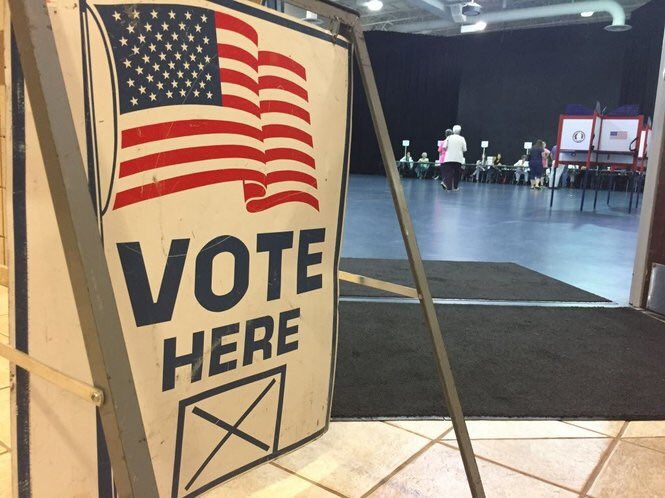- 14 3402-5578
- Rua Hygino Muzy Filho, 737, MARÍLIA - SP
- contato@latinoobservatory.org
 Foto: Gage Skidmore from Peoria, AZ, United States of America
Foto: Gage Skidmore from Peoria, AZ, United States of America
An article that analyzes the use of technologies for the purpose of deporting people in the United States, describes the experience of an immigrant woman who lived in the country for 21 years before receiving a letter with a deportation notice on her doorstep. She believed she had taken all the necessary precautions to avoid being tracked by authorities, but she didn't know that basic information, such as her car registration or utility bills, could be used to locate her. This incident reflects a larger trend: the increasing use of advanced technologies by immigration authorities to monitor and track immigrants in the U.S.
During the Trump administration, which began 11 months before the incident with the woman, immigration law enforcement became increasingly reliant on technology. Authorities use data brokers to create detailed profiles of immigrants by combining thousands of data points. In addition, surveillance tools such as facial recognition and license plate readers are employed to track migrants. Sophisticated algorithms are also used to make decisions about migrants, from the need for an electronic ankle bracelet to the evaluation of asylum cases.
Immigrant rights advocates fear that with Trump leading the polls for a possible second term, these tools could be used to quickly deport millions of undocumented immigrants living in the U.S. Jacinta Gonzalez, field director of the organization Mijente, emphasizes that there is a vast technological infrastructure ready to facilitate these mass deportations. Although the Department of Homeland Security (DHS) stated in a 2023 memo that it would not use artificial intelligence for large-scale surveillance, concerns remain.
The deportation of undocumented immigrants has always been a reality in the US, but Congress has never been able to pass a law that regularizes the status of these individuals, which has left many in a situation of continuous vulnerability. The practice of deportation has fluctuated over the years, but deporting millions of people, as Trump has promised, would be logistically difficult, although creating an atmosphere of fear is something he can easily achieve, as explained by Muzaffar Chisti, a researcher at the Migration Policy Institute, according to the publication.
During his first term, Trump took a tough stance on immigration, implementing tough policies such as separating families at the border and instructing Immigration and Customs Enforcement (ICE) agents to deport immigrants without a hearing. In response, pro-immigration groups formed the “No Tech for ICE” coalition in 2018 to pressure companies to cut ties with immigration agencies, highlighting the role of technology in sustaining these stringent policies.
The article also addresses the growing concern about widespread surveillance, as reported by Georgetown University's Center for Privacy and Technology. ICE has access to a vast amount of personal data, including driver’s licenses and utility bills, and has spent billions of dollars on data collection and sharing initiatives. This massive data collection raises concerns about privacy and the use of technology to facilitate deportation.
However, efforts to limit that access, such as the proposed “4th Amendment is not for sale”, remain stalled in the Senate. The current administration has also stepped-up deportations, but at the same time offered relief to certain classes of undocumented immigrants, such as those married to U.S. citizens.
Julie Mao, an attorney at Just Futures Law, expresses concern about the possibility of Trump being re-elected, highlighting the potential abuse of surveillance tools, artificial intelligence, and algorithms. She warns that these technologies could be used to create detailed lists of immigrants to be deported. This concern is echoed by Antonio Gutierrez, co-founder of the group Organized Communities Against Deportations (OCAD), who mentions the growing fear and uncertainty among undocumented immigrants in the face of possible repression, according to the same publication.
The preparation of immigrant communities for a possible increase in deportations is evident, the report concludes, with undocumented parents being forced to prepare instructions on the care of their children if they are detained. Anxiety and fear are palpable among these communities, reflecting a state of constant vigilance and uncertainty.











